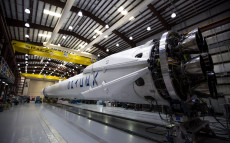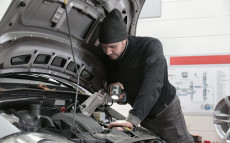- pathfindersAI
- Job Profile
Automotive Engineering Technicians
Summary
Automotive Engineering Technicians
The dynamic world of automotive engineering has long captivated the imaginations of those interested in the confluence of technology, mechanics, and innovation. At the crux of this fascinating industry are the Automotive Engineering Technicians, professionals who play a pivotal role in the development, testing, and optimization of automotive systems and components. This essay delineates the various facets of this vocation, offering a comprehensive understanding of what it means to be an Automotive Engineering Technician.
What They Do
Automotive Engineering Technicians are instrumental in turning conceptual engineering designs into tangible, functioning automotive components. These professionals are responsible for conducting tests, gathering data, and performing analyses to ensure automotive parts and systems meet stringent safety and performance standards. They often work in specialized laboratories and testing grounds, where they utilize a variety of advanced tools and technologies to assess the durability, reliability, and efficiency of automotive components. Their work is critical in the early stages of product development and continues through to the final phases of manufacturing and production.
Job Responsibilities
The job responsibilities of an Automotive Engineering Technician are multifaceted and demanding. They include designing and developing testing methods, setting up and calibrating equipment, and analyzing the performance of vehicle systems under various conditions. Technicians also interpret technical drawings and specifications, prepare detailed reports, and collaborate closely with engineers to troubleshoot and resolve issues. Routine tasks might involve the inspection of new and modified vehicles, the evaluation of the functionality of different systems such as brakes, fuel systems, and transmissions, and the recommendation of modifications to improve performance.
Essential Skills
To excel in this role, Automotive Engineering Technicians must possess a robust set of skills. Critical thinking and problem-solving abilities are paramount, as technicians frequently face complex issues that require innovative solutions. Attention to detail is crucial, ensuring that all tests and data analyses are conducted accurately. Proficiency in using various testing and diagnostic equipment, along with solid mechanical and technical knowledge, is also essential. Strong communication skills are required to liaise effectively with engineers and other team members, and a commitment to continual learning stands these professionals in good stead as automotive technology evolves.
Educational Pathways
Aspiring Automotive Engineering Technicians typically pursue a combination of education and hands-on experience. While some may enter the field with a high school diploma and extensive on-the-job training, most positions require at least an associate degree in automotive technology, engineering technology, or a closely-related field. These programs often include coursework in subjects such as physics, mathematics, computer science, and materials science, along with practical training through lab sessions and internships. Certification from recognized professional bodies, such as the National Institute for Automotive Service Excellence (ASE), can further enhance employment prospects and professional credibility.
Career Prospects
The career prospects for Automotive Engineering Technicians are promising, with a consistent demand driven by ongoing advancements in automotive technology and a growing focus on eco-friendly and autonomous vehicles. Graduates can find employment in various settings, including automotive manufacturing companies, research and development laboratories, and government agencies. Additionally, the skills and experience gained in this role can serve as a springboard for further career advancement, potentially leading to roles in automotive engineering, project management, or technical sales. Job prospects are particularly favorable for those who stay abreast of emerging technologies and continue to upgrade their skill sets.
Conclusion
In conclusion, Automotive Engineering Technicians are vital to the automotive industry, ensuring that vehicles on the road are safe, efficient, and reliable. The role demands a blend of technical acumen, practical skills, and a passion for innovation. For those willing to engage in continuous learning and adapt to evolving technologies, this career offers rewarding opportunities and a significant role in shaping the future of transportation. With a strong educational foundation and a commitment to excellence, aspiring technicians can carve out a fulfilling career in this ever-evolving field.
Video
Compensation
| State | Median Salary | Median Hourly | Positions |
|---|---|---|---|
| AL | 61,570 | 29.60 | 450 |
| AZ | 62,960 | 30.27 | 480 |
| CA | 77,750 | 37.38 | 3,350 |
| CO | 77,480 | 37.25 | 480 |
| CT | 75,370 | 36.24 | 260 |
| DE | 69,930 | 33.62 | 130 |
| FL | 61,500 | 29.57 | 1,170 |
| GA | 63,490 | 30.52 | 790 |
| ID | 63,600 | 30.58 | 200 |
| IL | 67,650 | 32.53 | 1,140 |
| IN | 67,920 | 32.65 | 2,130 |
| IA | 59,940 | 28.82 | 680 |
| KS | 53,800 | 25.87 | 200 |
| KY | 64,470 | 30.99 | 450 |
| LA | 85,750 | 41.23 | 400 |
| ME | 65,560 | 31.52 | 130 |
| MD | 65,520 | 31.50 | 710 |
| MA | 74,430 | 35.78 | 630 |
| MI | 62,030 | 29.82 | 7,400 |
| MN | 70,810 | 34.04 | 730 |
| MS | 64,760 | 31.14 | 210 |
| MO | 67,080 | 32.25 | 260 |
| NE | 73,300 | 35.24 | 320 |
| NV | 78,530 | 37.76 | 320 |
| NH | 63,110 | 30.34 | 440 |
| NJ | 64,200 | 30.86 | 530 |
| NM | 83,040 | 39.92 | 260 |
| NY | 64,310 | 30.92 | 1,260 |
| NC | 59,240 | 28.48 | 840 |
| ND | 64,680 | 31.10 | 90 |
| OH | 62,520 | 30.06 | 2,200 |
| OK | 61,240 | 29.44 | 210 |
| OR | 73,620 | 35.39 | 300 |
| PA | 60,190 | 28.94 | 1,930 |
| SC | 61,820 | 29.72 | 870 |
| SD | 50,390 | 24.23 | 170 |
| TN | 64,250 | 30.89 | 260 |
| TX | 64,260 | 30.89 | 2,130 |
| UT | 51,940 | 24.97 | 1,030 |
| VA | 78,940 | 37.95 | 600 |
| WA | 74,180 | 35.66 | 780 |
| WV | 56,540 | 27.18 | 60 |
| WI | 63,020 | 30.30 | 1,300 |
Similar Occupations
In this area you will find other occupations that are close to the one you were viewing in tasks, knowledge and work environment. If the primary job profile you are viewing isn't quite to your liking, take a look around and see what else is available.
Basic and Premium Accounts have more alternative occupations available than the Free account.

Aerospace Engineering and Operations Technologists and Technicians - 17-3021.00
Aerospace Engineering and Operations Technologists and Technicians assist in the design, testing, and maintenance of aircraft, spacecraft, and related systems and equipment. They utilize technical skills and advanced tools to ensure the functionality, safety, and efficiency of aerospace technologies and operations.
-
$77,830/yr
Median Pay -
10,640
Number of Jobs

Automotive Service Technicians and Mechanics - 49-3023.00
Automotive Service Technicians and Mechanics diagnose, maintain, and repair vehicles by inspecting and working on various components such as engines, brakes, transmissions, and electronics. They ensure automobiles are safe and efficient by conducting routine maintenance, performing complex repairs, and using specialized tools and diagnostic equipment.
-
$47,770/yr
Median Pay -
676,570
Number of Jobs